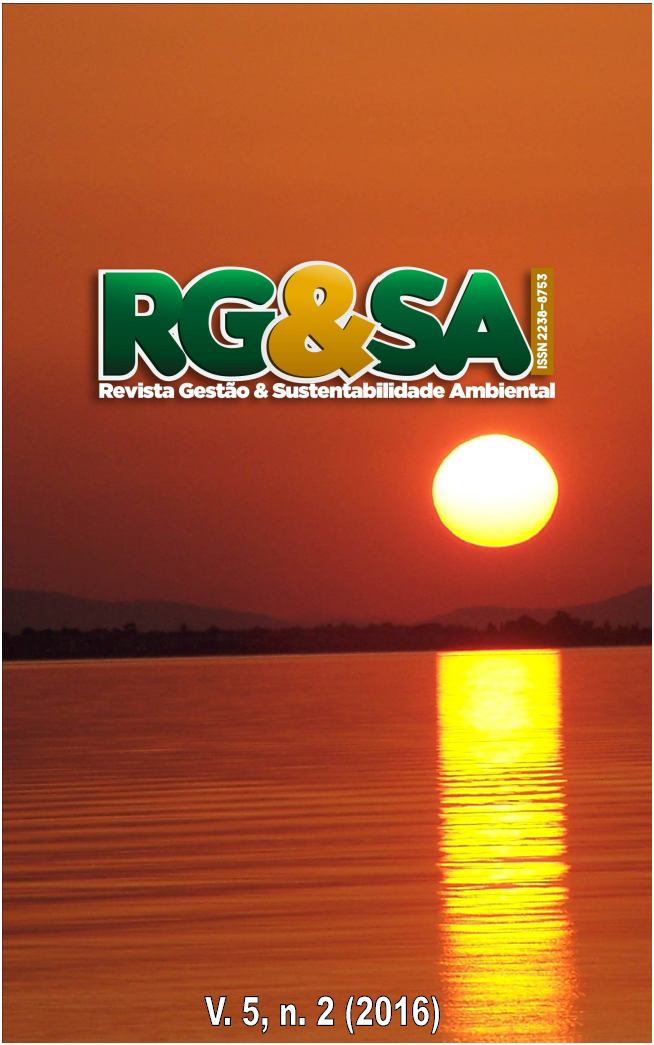THE EFFECTIVENESS OF THE ESTABLISHMENT OF ENVIRONMENTAL QUALITY STANDARDS
DOI:
https://doi.org/10.19177/rgsa.v5e2201685-111Keywords:
Sustainable development, pollution, environmental legislationAbstract
The National Environment Policy determined the establishment of environmental quality standards as one of the instruments for the management of natural resources in the country. After more than thirty years of this prediction, there are not concrete studies to evaluate the results obtained so far. This work examined if the instrument has produced the expected goals. The research was exploratory, outlined by bibliographic and documentary methods. The results showed that the legal provision was fulfilled, with current quality standards for water, air, noise sound and soil, established by predefined classes of use of the territory. However, these patterns have not been allocated as quality targets, able to ensure the required environmental conditions in the country. The prevailing action is the use of command and control measures to reduce pollution, especially the application of emission limits for specific sources, without the expected observation of the limits specified by the standards of environmental quality. In addition, the lack of planning of the use of the territory and the shortcomings in monitoring environmental quality in Brazil harm the appropriation of established standards. Thus, it is concluded that the environmental quality standards have not been effective.Downloads
Published
2016-11-16
Issue
Section
Artigos
License

O trabalho Revista Gestão & Sustentabilidade Ambiental foi licenciado com uma Licença Creative Commons - Atribuição - NãoComercial - CompartilhaIgual 3.0 Brasil.
Com base no trabalho disponível em www.portaldeperiodicos.unisul.br.
How to Cite
THE EFFECTIVENESS OF THE ESTABLISHMENT OF ENVIRONMENTAL QUALITY STANDARDS. (2016). Revista Gestão & Sustentabilidade Ambiental, 5(2), 85-111. https://doi.org/10.19177/rgsa.v5e2201685-111








